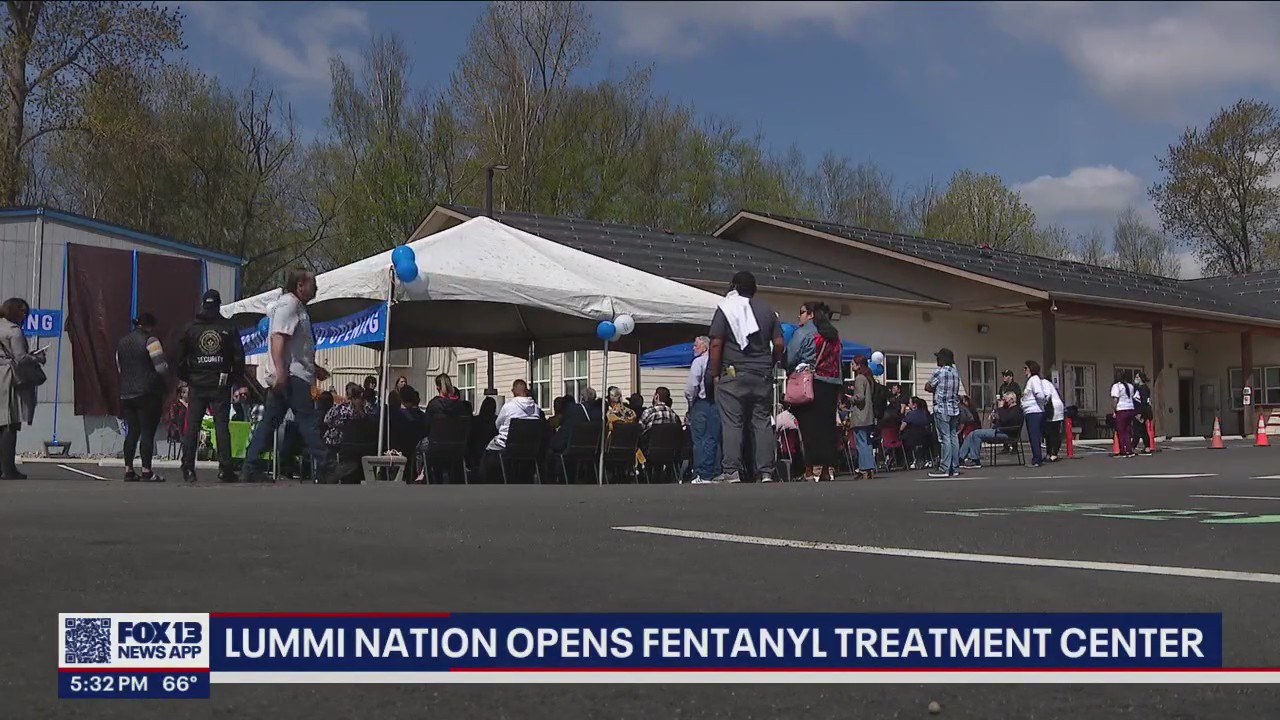Lummi Nation opens new outpatient treatment center for fentanyl addiction

Lummi Nation opens new outpatient treatment center for fentanyl addiction
In King County, the rate of overdose for American/Indian Alaska Native individuals is nine times higher than white individuals, according to Public Health – Seattle & King County.
LUMMI RESERVATION, Wash. - In Washington, the rate of fentanyl overdose is disproportionately higher for people of color.
In King County, for example, the rate of overdose for American/Indian Alaska Native individuals is nine times higher than white individuals, according to Public Health – Seattle & King County.
The Lummi Nation is also experiencing the devastation of the synthetic drug.
On Thursday, members of the tribe and their Bellingham neighbors celebrated the opening of New Life Center. It’s designed to provide outpatient care for Lummi Nation members struggling with fentanyl addiction.
"It’s for our people who have asked for this for many years," said Rosalie Scott, director of the tribe’s Outpatient Treatment Services. "It had to come to the fentanyl to make our people move. This is the worst drug I’ve seen in the years that I’ve been in this field, from 1982 to now."
New Life Center is an extension of the tribe’s existing Outpatient Treatment Services facility. It’s equipped with a medical exam room, seven beds, kitchen, showers and laundry facilities. The center will specifically focus on medical stabilization and withdrawal management from fentanyl.
"Every person that is on fentanyl today that we have talked to say that is the worst drug that they’ve ever had to withdraw from. It is horrendous, it is wicked and it is mean. And it is why we’re in this epidemic, it’s because that drug is so powerful and it’s so hard to get that drug off your back," said Deanna Point, interim director of the Outpatient Treatment Services.
Point overcame her own battles with addiction. However, she said she has never seen anything like what fentanyl has done to her community.
"We’ve never had so many Lummi Nation people leave the reservation to go be homeless to get their fix for fentanyl. It was surreal to us. For them to leave the reservation like that is really, highly unusual. And that shows you the power of fentanyl," said Point. "We went out there and we talked to our people and said what can we do to get you home? A lot of them said detox, a lot of them want treatment. A lot of them are ashamed to come home. Some just said ‘I’m not ready.’"
New Life Center will operate under a 24-hour supervision seven days a week. Members of the Lummi Nation said the goal is to expand their services on a larger scale. They hope to build a new $27.5 million facility that will have 16 beds, offering a cultural and spiritual approach to treatment.
"Caring about our people is the biggest thing and loving one another. To love my family, to love who we are," said Scott.

